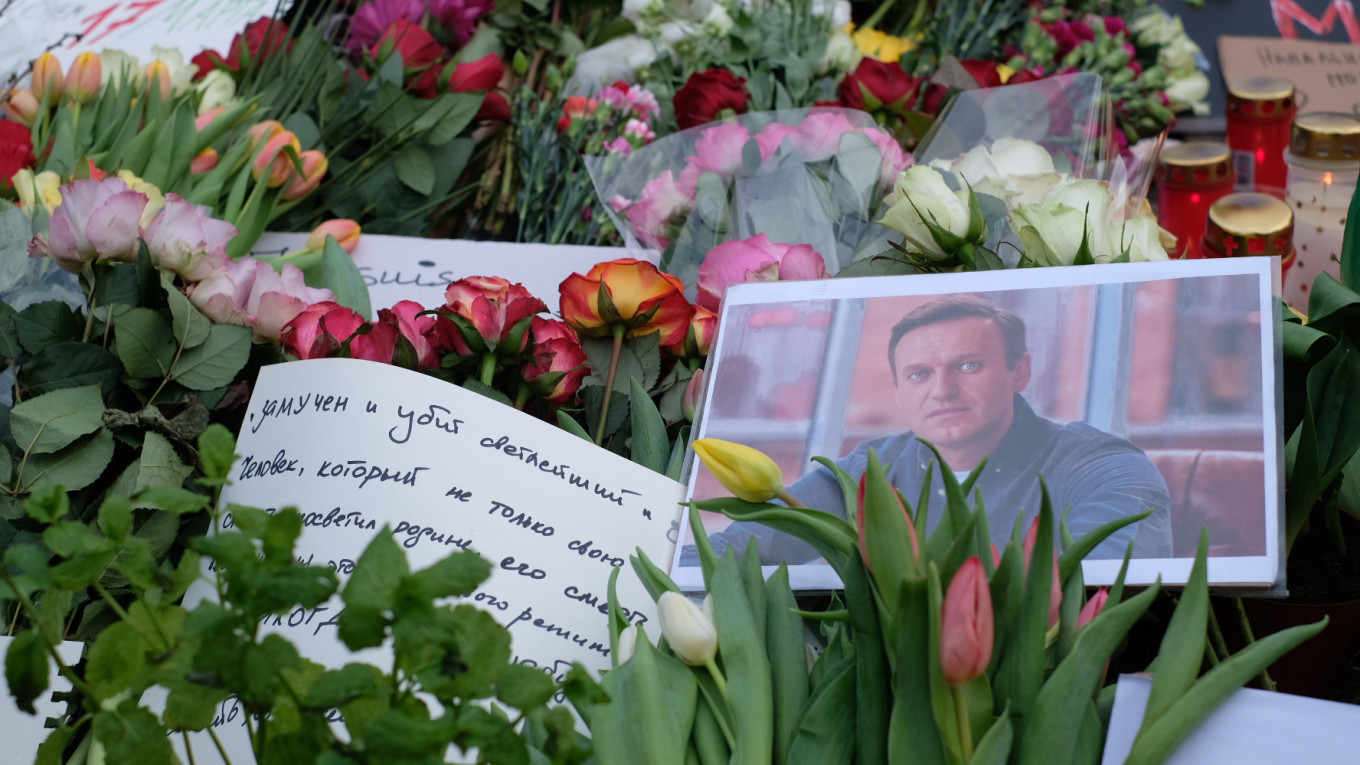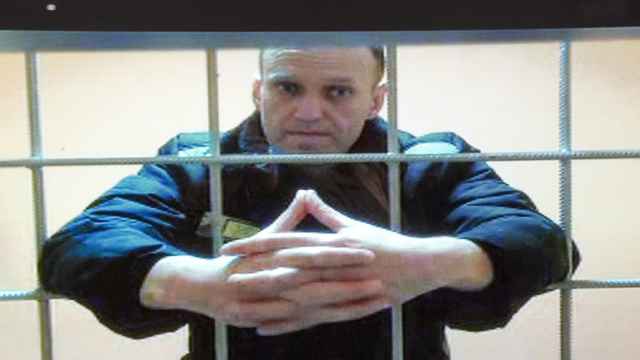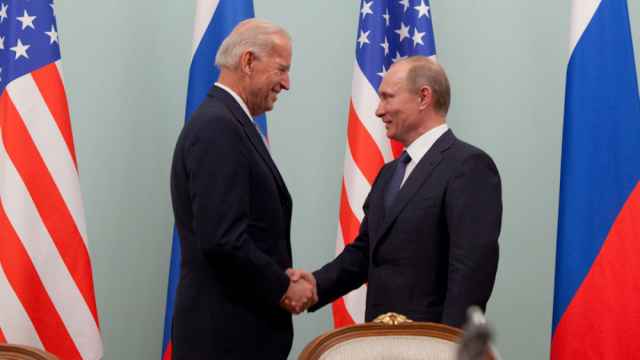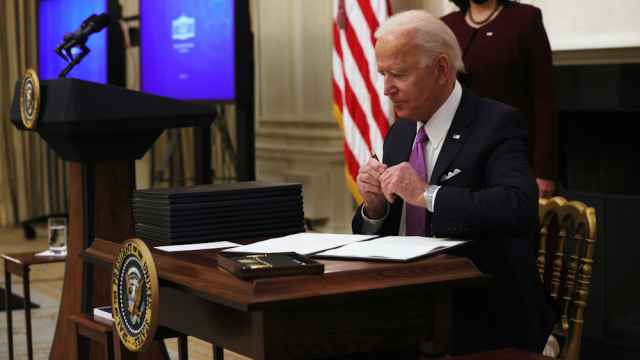The U.S. ambassador to Moscow visited a makeshift shrine to Alexei Navalny on Sunday, as Russian authorities suppressed memorials and tributes to the late opposition leader.
Rights groups say police have detained over 400 people at gatherings for the politician, a leading critic of President Vladimir Putin who died in an Arctic prison Friday.
Ambassador Lynne Tracy was pictured on Sunday at the Solovetsky Stone, a monument to political repression that has become a major site of tributes for Navalny.
"Today at the Solovetsky Stone we mourn the death of Alexei Navalny and other victims of political repression in Russia," the U.S. embassy in Moscow said on social media.
"We extend our deepest condolences to Alexei Navalny's family, colleagues and supporters. His strength is an inspiring example. We honor his memory," it said.
At a separate makeshift memorial known as the "Wall of Grief," a bronze monument to Soviet-era repression, police had set up fences in a bid to ward off mourners.
Several dozen police officers could be seen standing nearby, but some people were allowed to enter through the fence and lay flowers, an AFP reporter saw.
Navalny, aged 47, was seen by many Russians as their best hope for change after years of perceived corruption and spiralling state oppression.
His death after over three years behind bars sparked a storm of condemnation from the West and despair among his supporters, many of whom are young people.
"It was not a death, it was murder," Leonid Volkov, a top Navalny ally, wrote on Telegram on Saturday.
"His life's work must win out," he said.
A Message from The Moscow Times:
Dear readers,
We are facing unprecedented challenges. Russia's Prosecutor General's Office has designated The Moscow Times as an "undesirable" organization, criminalizing our work and putting our staff at risk of prosecution. This follows our earlier unjust labeling as a "foreign agent."
These actions are direct attempts to silence independent journalism in Russia. The authorities claim our work "discredits the decisions of the Russian leadership." We see things differently: we strive to provide accurate, unbiased reporting on Russia.
We, the journalists of The Moscow Times, refuse to be silenced. But to continue our work, we need your help.
Your support, no matter how small, makes a world of difference. If you can, please support us monthly starting from just $2. It's quick to set up, and every contribution makes a significant impact.
By supporting The Moscow Times, you're defending open, independent journalism in the face of repression. Thank you for standing with us.
Remind me later.






